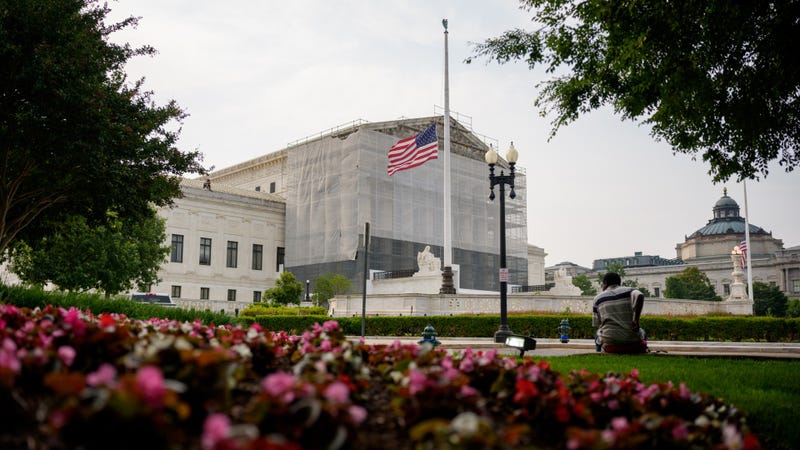
The Supreme Court on June 12 ruled unanimously in favor of a class of over 9,000 disabled Army, Navy, Marine Corps, Air Force and Coast Guard veterans who were wrongfully denied their full retroactive combat-related special compensation.
The National Veterans Legal Services Program and Sidley Austin LLP filed a lawsuit in 2017 on behalf of Marine Corps veteran Simon Soto and a class of similarly situated veterans who were denied more than six years of retroactive CRSC.
Soto served in the Marine Corps from August 2000 to April 2006, with two tours of duty in Iraq, where he searched for, recovered, and processed the remains of war casualties. As a result of his service, Soto was diagnosed with post-traumatic stress disorder, medically discharged, and awarded permanent medical disability retirement.
The Navy granted Soto’s application for CRSC in 2016. However, the Navy limited its payment to Soto to only six years of retroactive pay, relying on a statute of limitations in a federal law called the Barring Act.
In December of 2021, the U.S. District Court for the Southern District of Texas rejected the military’s rationale and ordered the government to pay all former service members whose amount of CRSC payment was limited by the government’s application of the Barring Act and who were owed an additional amount of CRSC of $10,000 or less.
On appeal, the Federal Circuit reversed the lower court’s ruling. NVLSP and Sidley Austin filed their petition with the Supreme Court in September 2024 to vindicate the rights of thousands of combat-disabled war veterans. The Supreme Court heard oral arguments on April 28, 2025, on the Soto case.
The Supreme Court unanimously held that there is no six-year cap on retroactive CRSC payments. Justice Clarence Thomas, writing for the Court, explained that “where, as here, the statutory scheme involves a small group of particularly deserving claimants, it is not extraordinary to think that Congress wished to forgo a limitations period.”
“The Court’s ruling ensures that combat-disabled veterans will receive all the combat-related special compensation they are entitled to by law,” said Sidley Austin partner Tacy Flint, who argued the case. “Our firm has had a long tradition of representing veterans. We are thrilled that thousands of veterans will benefit from this critical decision.”
NVLSP Executive Director Paul Wright said that thousands of combat-
“Because of this decision, thousands of combat-disabled veterans will finally receive the full amount of the compensation they earned through their service and sacrifice,” said NVLSP Executive Director Paul Wright. “We are grateful that the Supreme Court recognized that Congress intended veterans to receive the full amount of their combat-related special compensation, no matter when they seek it.”
The US. District Court for the Southern District of Texas’s jurisdiction is limited to lawsuits against the government seeking a maximum of $10,000. NVLSP and Sidley Austin have also filed a parallel suit on behalf of veterans with claims over $10,000.
Veterans who believe they are part of the Soto class visit here for more information.
Reach Julia LeDoux at Julia@connectingvets.com.
